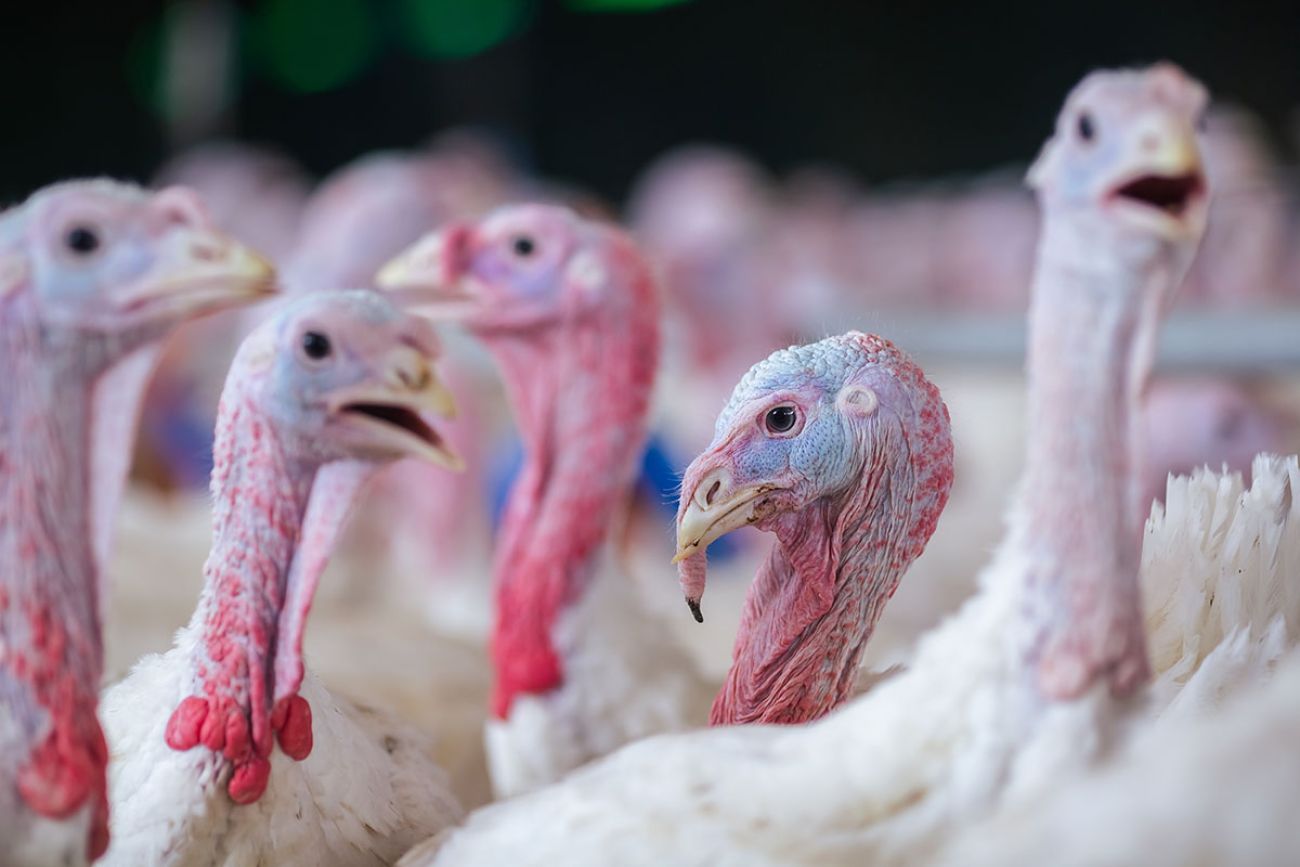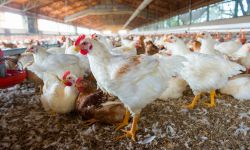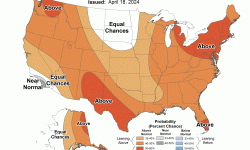Bird flu hits turkey flock in Newaygo County as virus spreads in Michigan


- A turkey flock in Newaygo County tested positive for bird flu
- It’s the second commercial poultry flock in the state this year known to have been infected with the disease
- The bird flu is highly contagious and farmers are required to kill the infected birds to prevent the disease from spreading
May 1: Michigan farmers must step up bird flu fight under new emergency order
The bird flu continues to impact poultry flocks in Michigan as wild birds make their migration from the south.
The U.S. Department of Agriculture reported last week that highly pathogenic avian influenza had been detected in a commercial flock of turkeys being raised for meat in Newaygo County.
News of the outbreak, which affected more than 67,000 turkeys, comes after the disease was detected in a poultry flock in Ionia County earlier in April. Officials detected the disease in a flock of hens at the Green Meadow Organics facility owned by Herbruck’s, the top egg producer in Michigan.
Related:
- Love is in the air for turkeys in Michigan, but spring hunting season looms
- Bird flu found in hens at Michigan’s top egg producer
- Bird flu found in cattle on a dairy farm in central Michigan
“Taking preventative measures to keep wild birds away from farms is essential to combatting HPAI and limiting its impact," said State Veterinarian Dr. Nora Wineland. "As wild birds continue to migrate and the outside temperatures remain cool and temperate, conditions are ideal for the virus to spread.”
The latest outbreak at a commercial facility is the seventh since 2022, when the disease was first reported in Michigan, the state Department of Agriculture confirmed.
It’s not just Michigan poultry farms that have been impacted. The Michigan Department of Agriculture and Rural Development detected the disease this month in four dairy herds in Ionia, Isabella, Ottawa and Montcalm counties.
Agriculture officials are examining whether cattle and poultry infection cases somehow could be linked.
"Part of the focus on this today has been a spillover event into dairy cattle in a unique way," Tim Boring, director of MDARD, told Bridge Michigan.
“We're in a bit of a unique situation now too, of reevaluating what we've known about this virus and what transmission has looked like and what susceptibility to dairy cattle has looked like in a way that a few weeks ago we hadn't experienced.”
Food safety
Bird flu can be fatal to domestic poultry flocks, and once the disease has been detected, farmers are required to “depopulate” or kill the infected birds to prevent the disease from spreading further, according to the U.S. Department of Agriculture.
But the disease affects cattle very differently. Unlike poultry, most cattle typically recover from avian flu, though the cows may produce less milk and may present other mild symptoms, the state agriculture department says.
According to Michigan agriculture officials, people cannot contract bird flu from eating infected poultry or their eggs. “Poultry and eggs that are properly prepared and cooked are safe to eat. Proper food safety practices are important every day,” the state says.
As for milk, the virus is killed through the pasteurization process and therefore is not considered a threat to consumers.
People can get the virus through other means, however. The bird flu can be easily transmitted through infected machinery and equipment or clothing. The Michigan agriculture department recommends that farmers wash their hands between handling birds, disinfect boots, areas and equipment between coops and use well or municipal water as drinking water for the birds.
Michigan Environment Watch
Michigan Environment Watch examines how public policy, industry, and other factors interact with the state’s trove of natural resources.
- See full coverage
- Subscribe
- Share tips and questions with Bridge environment reporter Kelly House
Michigan Environment Watch is made possible by generous financial support from:
Our generous Environment Watch underwriters encourage Bridge Michigan readers to also support civic journalism by becoming Bridge members. Please consider joining today.
See what new members are saying about why they donated to Bridge Michigan:
- “In order for this information to be accurate and unbiased it must be underwritten by its readers, not by special interests.” - Larry S.
- “Not many other media sources report on the topics Bridge does.” - Susan B.
- “Your journalism is outstanding and rare these days.” - Mark S.
If you want to ensure the future of nonpartisan, nonprofit Michigan journalism, please become a member today. You, too, will be asked why you donated and maybe we'll feature your quote next time!




